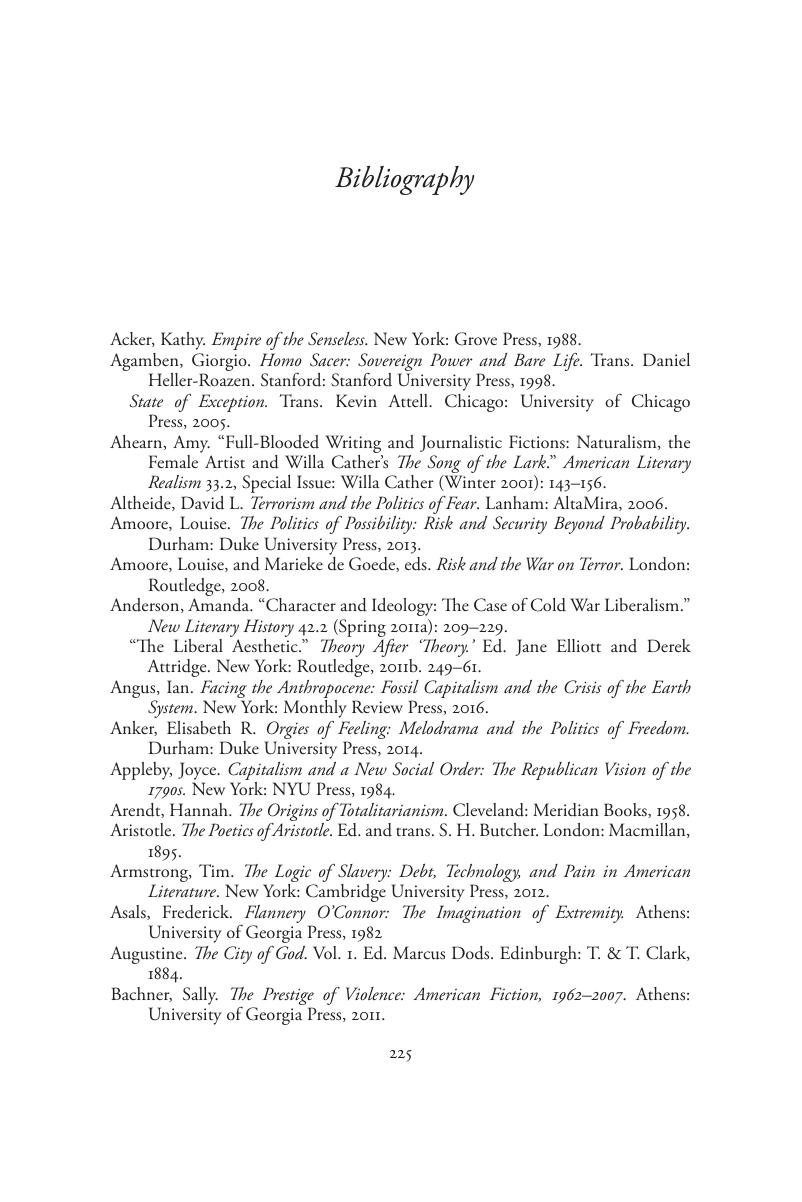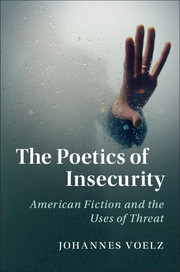Book contents
- The Poetics of Insecurity
- Cambridge Studies in American Literature and Culture
- The Poetics of Insecurity
- Copyright page
- Dedication
- Contents
- Acknowledgments
- Chapter 1 Introduction
- Chapter 2 The Virtue of Uncertainty
- Chapter 3 Harriet Jacobs’s Imagined Community of Insecurity
- Chapter 4 Willa Cather and the Security of Radical Contingency
- Chapter 5 Cold War Liberalism and Flannery O’Connor’s “The Displaced Person”
- Chapter 6 In the Future, Toward Death
- Epilogue
- Notes
- Bibliography
- Index
- Series page
- References
Bibliography
Published online by Cambridge University Press: 08 December 2017
- The Poetics of Insecurity
- Cambridge Studies in American Literature and Culture
- The Poetics of Insecurity
- Copyright page
- Dedication
- Contents
- Acknowledgments
- Chapter 1 Introduction
- Chapter 2 The Virtue of Uncertainty
- Chapter 3 Harriet Jacobs’s Imagined Community of Insecurity
- Chapter 4 Willa Cather and the Security of Radical Contingency
- Chapter 5 Cold War Liberalism and Flannery O’Connor’s “The Displaced Person”
- Chapter 6 In the Future, Toward Death
- Epilogue
- Notes
- Bibliography
- Index
- Series page
- References
Summary

- Type
- Chapter
- Information
- The Poetics of InsecurityAmerican Fiction and the Uses of Threat, pp. 225 - 242Publisher: Cambridge University PressPrint publication year: 2017



